“Blood Bath” & Beyond (BBBY) was the latest meme stock to be forced into a massive gamma/short squeeze by speculators last week. An SEC filing on Monday revealed meme-stock activist investor, Ryan Cohen, held a significant position in the company, including far OTM options. This filing ultimately started the buying frenzy. The stock closed at $5.77 on August 1st and peaked at $30 Wednesday after traders began stampeding in.
The filing ultimately started the short-lived frenzy, but while retail investors were rushing into the stock, Cohen’s RC Ventures was dumping shares on the market. A schedule 13D/A filed by RC Ventures after Thursday’s close, shown below, revealed that the fund sold its entire 10% stake throughout the 16th and 17th. There are calls for an SEC investigation after the filing immediately sent the stock screaming lower. During the “Blood Bath,” share of BBBY fell over 60% from its peak by Friday’s close as speculators rushed to the exits.
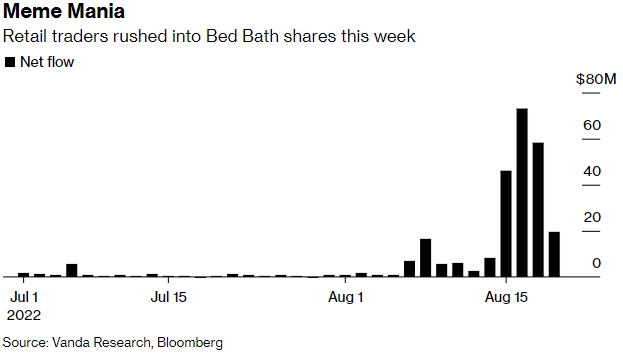
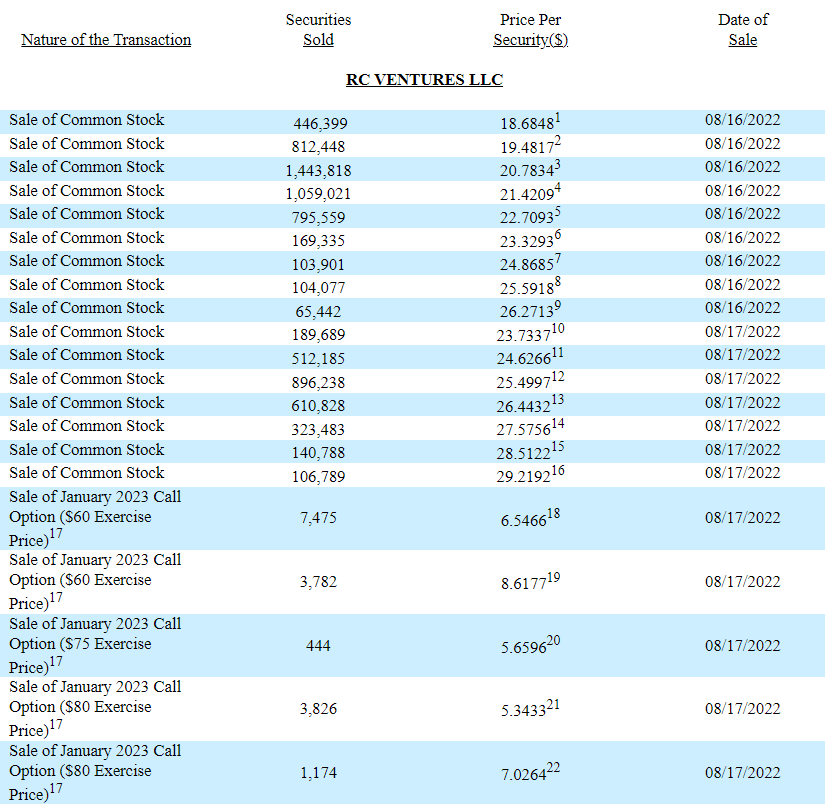


What To Watch Today
Economy
- Chicago Fed National Activity Index, July (-0.19 previously)
Earnings
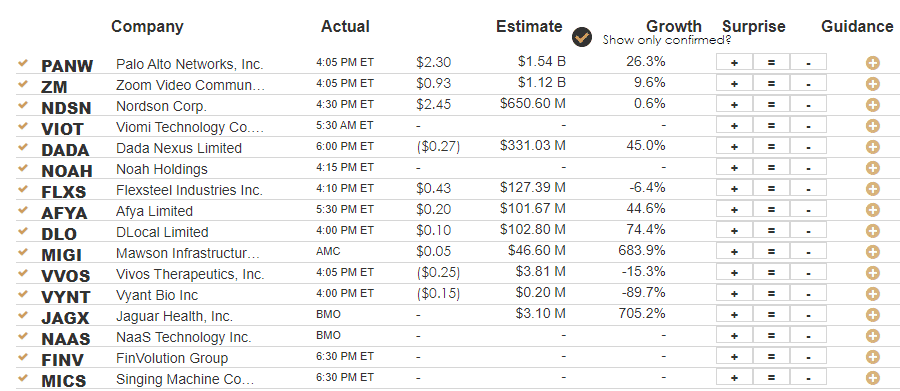
Market Trading Update
The blood bath on Friday was not surprising for investors, given the highly overbought conditions. As shown, the market tested resistance at the 200-dma and is well deviated above the 50-dma with the Relative Strength Index (RSI) back to more extreme overbought levels. We will have to wait and see if Friday’s expected selloff was a one-day dip or a more sizeable retracement. We suspect we may see the latter with the MACD close to a sell signal.
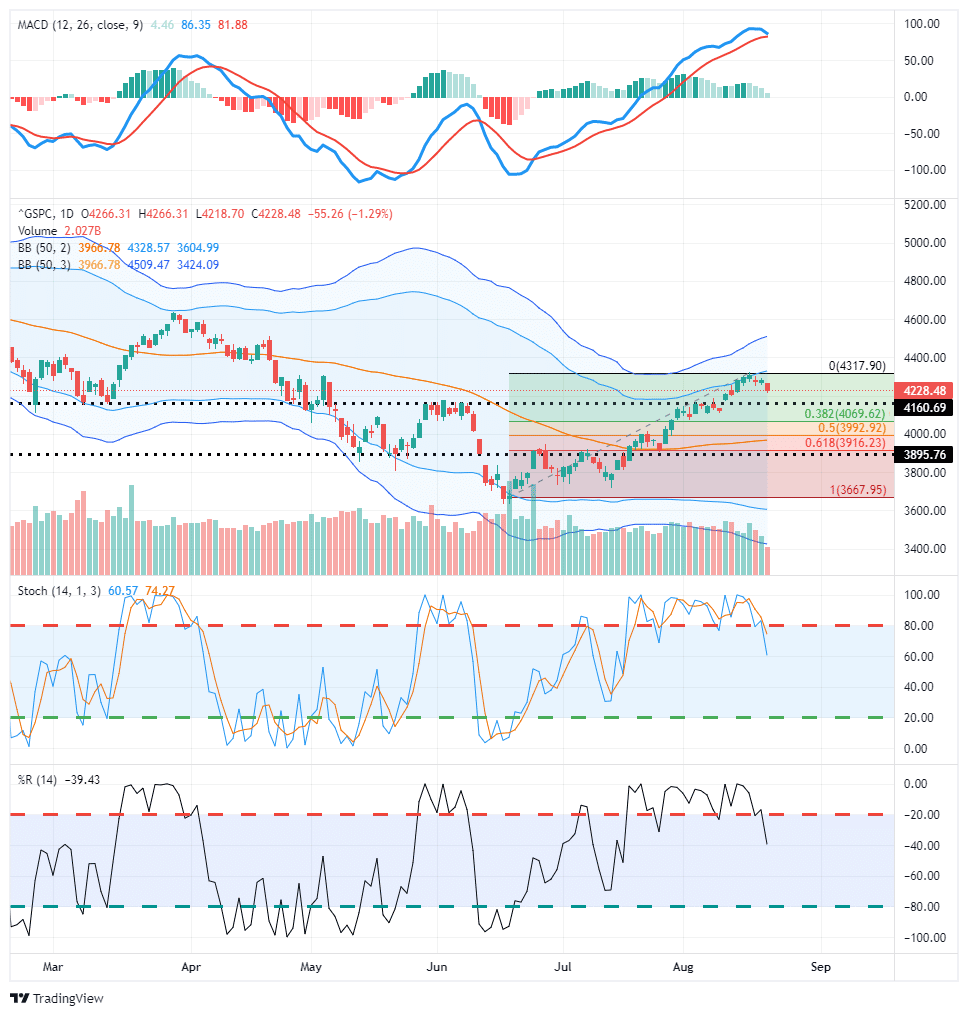
The most logical retracement rallies are at the 100-dma (black-dotted line) and the 50% retracement level, coinciding with the 50-dma and previous support levels. A break below that, and we will retest lows.
As noted on Thursday,
“Such suggests that investors should consider taking profits and rebalancing portfolio risks while waiting for the market to pull back. A pullback would reduce the more extreme conditions and allow for a better risk/reward entry for increasing portfolio allocations. This rally has mostly focused on fundamentally sub-par companies, which now provides a better opportunity to swap into more fundamentally sound businesses.”
We are currently open to increasing equity exposure on a pullback to support. However, we are also well aware of the risk of a secondary decline if, as the FOMC minutes noted, the Fed does indeed further tighten monetary policy. That could be the real blood bath.
Checking In On The Meme Stock Mania
Despite the decimation in the shares of “Blood Bath & Beyond” last week, the “meme stock mania” is far from its former glory. As noted by Chartr:
“Since we first wrote about the meme-stock phenomenon, much has changed. Gone are the stimulus checks and loose monetary policy, replaced with inflation and an economy on the brink of a recession. Without the chart above for reference, you might have guessed that GameStop, the original meme-stock, might have completely cratered in that environment, but GME shares have held onto most of their gains surprisingly well.
A theoretical $100 invested in GameStop at the start of 2021 would have turned into more than $1,800 at the stock’s peak. Although the shares have drifted lower since then, they remain some 10-20x higher than where they were for most of 2020. AMC Theatres, another Reddit fan favorite, has also held onto some of its gains, while shorter-lived meme investments like BlackBerry haven’t held up quite so well.”
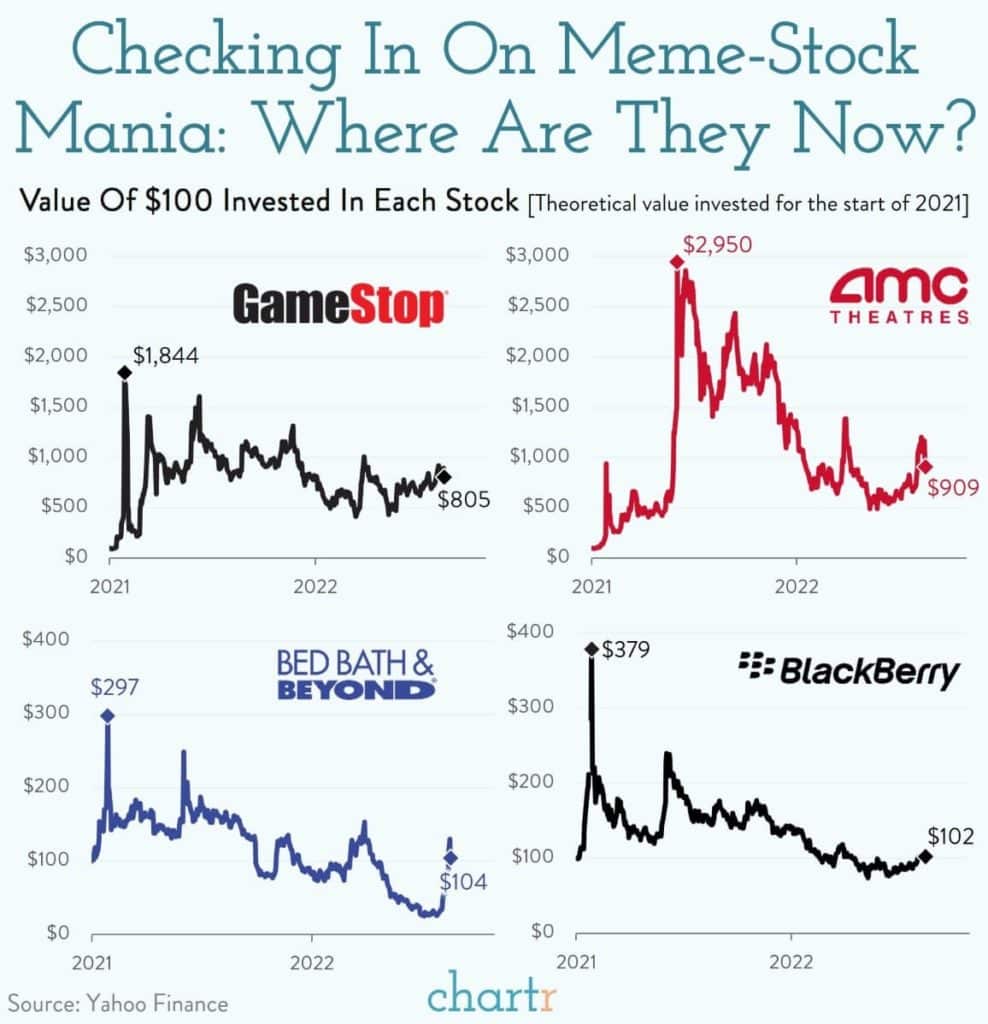
The Week Ahead
Economic data this week begins with the Chicago Fed National Activity Index for July this morning. Tomorrow, we get the S&P Global Manufacturing PMI Flash for August and New Home Sales data for July. Eyes will be on the New Home Sales figure for deterioration after last ThThursday’sxisting home sales miss. WeWe’llet durable goods orders and pending home sales for July on Wednesday. The consensus is for durable goods orders to increase by 0.4% after 1.9% growth in June. Finally, Thursday is the final estimate for 2nd quarter GDP growth, and Friday will bring Personal Income and Outlays data for July.
The annual Jackson Hole conference kicks off this Thursday and runs through Saturday. This year’s topic is “R,” assessing “Constraints on the Economy and Policy.” Market participants will watch for comments on the growth outlook, inflation, and monetary policy. Perhaps the most highly anticipated event will be Jerome PoPowell’speech on the economic outlook Friday at 10 a.m. EDT. The core PCE price index for July, which is the Fed’s preferred inflation metric, will be released two hours before Powell speaks. The conference could be a prime opportunity for Powell to put to bed any expectations that the Fed is getting close to easing up.
Some Mortgage Lenders Are in Trouble
Mortgage first lenders are beginning to feel the pain caused by surging mortgage rates and high real estate prices. As we wrote on Friday, existing home sales declined over the past six months as rates increased. Bloomberg notes,
“The US mortgage industry is seeing its first lenders go out of business after a sudden spike in lending rates, and the wave of failures that’s coming could be the worst since the housing bubble burst about 15 years ago.”
Although more bankruptcies are expected, the downturn is unlikely to escalate into a more significant crisis.
“There’s no systemic meltdown coming this time around, because there hasn’t been the same level of lending excesses and because many of the biggest banks pulled back from mortgages after the financial crisis. But market watchers nonetheless expect a string of bankruptcies broad enough to trigger a spike in layoffs in an industry that employs hundreds of thousands of workers, and potentially an increase in some lending rates. More of the business is now controlled by independent lenders, and with mortgage volumes plunging this year, many are struggling to stay afloat.”
The article continues,
“Unlike banks, independent lenders often don’t have emergency programs they can tap for financing when times get tough, nor do they have stable deposit funding. They depend on credit lines that tend to be short-term and depend on mortgage prices. So when they’re stuck with bad assets, they face margin calls and potentially go under.”
The credit lines mentioned by the author are “warehouse lines.” Warehouse lines extended by banks are already starting to shrink in response to market conditions, which could push borrowing rates higher at the margin. A tightening of lending capacity in this manner would spell trouble for both housing affordability and real estate prices in the near term.
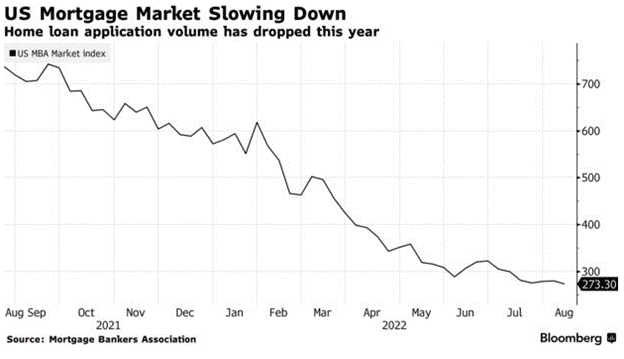
FDIC Calls Out FTX
The FDIC issued cease-and-desist letters to cryptocurrency exchange FTX and four other cryptocurrency companies on Friday for misleading consumers. The letter to FTX focuses on a tweet by the president, Brett Harrison, which falsely stated:
“Direct deposits from employers to FTX US are stored in individually FDIC-insured bank accounts in the users names.” The tweet also claimed that “stocks are held in FDIC-insured and SIPC-insured brokerage accounts.”
The FDIC put those statements to bed in its letter to FTX.
“FTX US is not FDIC-insured, the FDIC does not insure any brokerage accounts, and FDIC insurance does not cover stocks or cryptocurrency… The FDIC only insures deposits held in insured banks and savings associations…and FDIC insurance only protects against losses caused by the failure of insured institutions. Accordingly, these statements are likely to mislead, and potentially harm consumers.”
Tweet of the Day
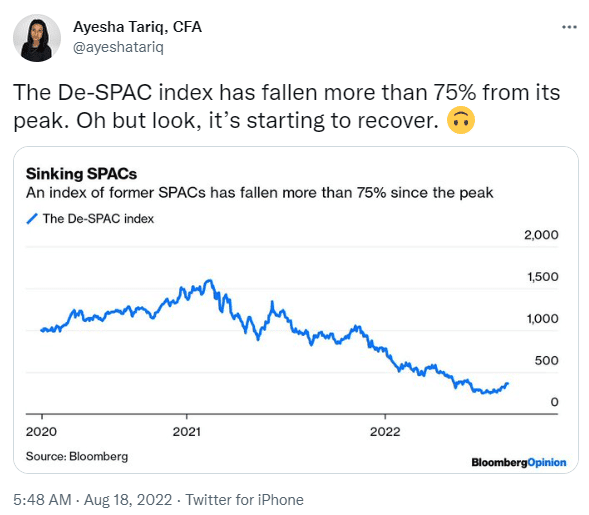
Please subscribe to the daily commentary to receive these updates every morning before the opening bell.
If you found this blog useful, please send it to someone else, share it on social media, or contact us to set up a meeting.




